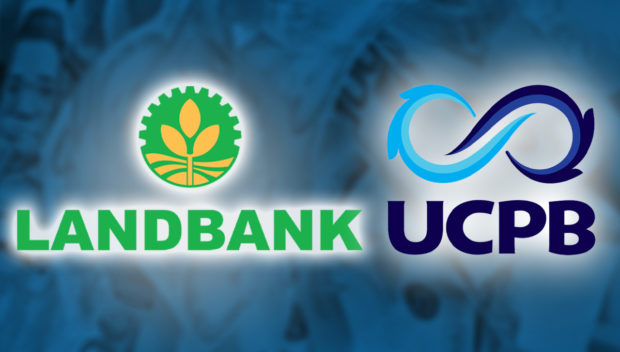Landbank taking over UCPB
Government-controlled lenders Land Bank of the Philippines and United Coconut Planters Bank (UCPB) are set to merge, creating a local banking powerhouse with about P2.7 trillion in combined assets, with Landbank as the surviving entity.
Under Executive Order No. 142, which was signed on June 25, President Duterte ordered the two banks to merge, a move seen to solidify Landbank’s position as the second largest bank in the country in terms of resources, next to BDO Unibank, which has P3.25 trillion in assets.
The two banks were directed to work on the merger within six months after the EO signing. A technical working group would be created to draw up the roadmap.
In a joint statement on Tuesday, the leaders of both banks said the transaction would create a “win-win” scenario for coconut farmers and other agricultural workers. As of end-2020, Landbank had P2.36 trillion in resources while UCPB, which ranked 13th among the 46 commercial banks in the country in terms of size, had P327.39 billion in assets.
Cecilia Borromeo, president and chief executive officer of Landbank, said the merger would promote “unprecedented” rural development, in keeping with the goal to expand financial inclusion among Filipinos, especially the underserved and unbanked sectors.
Track record in agri lending
Borromeo, herself a former scholar of Philippine Coconut Producers Federation Inc. (Cocofed), said coconut farmers would be able to take advantage of the expertise of Landbank in lending to the agriculture and agribusiness sectors.
“Landbank’s track record of being consistently compliant with the Agri-Agra law shows our commitment to perform our mandate, to empower not only the farmers but all workers in the agriculture sector,” she said.
Wider branch, ATM network
The Agri-Agra law mandates banks to allot 15 percent of their total lending portfolio for agriculture loans and 10 percent to agrarian reform beneficiaries.
“The merger enables UCPB and its clients to benefit from the strength, stability, scale and reach of Landbank. This also allows us to pursue our mandate to serve coconut farmers nationwide,” said UCPB officer in charge Liduvino Geron said.
In the past, legal disputes on ownership have constrained UCPB’s ability to raise capital and better compete in the banking arena, forcing the government provide financial support when needed. When the coco levy controversy was resolved in court, the government had considered bidding out UCPB to new investors but this did not push through.
Merging UCPB into Landbank allows the government to boost the former’s position without shelling out more money.
As of end-2020, Landbank’s agriculture loans reached 76.95 percent of its total loan portfolio. Agrarian reform lending, meanwhile, hit 11.52 percent in the same period.
“With the merged resources of Landbank and UCPB, we can bring closer to the farmers our services, as we are able to tap a combined 722 branches and servicing units, including those in the provinces,” Borromeo said. INQ

